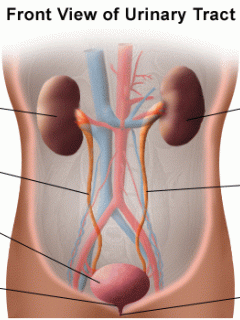What is Urinary Incontinence
Find your care
Our pelvic medicine team offers comprehensive, compassionate care. Call 833-825-2974 to learn more about our services.
Urinary incontinence (UI) is an involuntary loss of urine. It can occur with physical stress or exercise or with a sudden urge to urinate that cannot be deferred. The latter often results is the inability to hold urine until one can reach a restroom. According to the National Association for Continence, approximately 25 million adult Americans experience temporary or chronic urinary incontinence. UI can strike at any age. Women over age 50 are the most likely to develop UI. Urinary incontinence may be a temporary condition, resulting from an underlying medical condition. It can range from the discomfort of slight losses of urine to severe, frequent wetting.
What causes urinary incontinence?
Incontinence is not an inevitable result of aging but is particularly common in older people. It is often caused by specific changes in body function that may result from diseases, use of medications, and/or the onset of an illness. Sometimes it is the first and only symptom of a urinary tract infection. Women are most likely to develop incontinence either during pregnancy and childbirth or after the hormonal changes of menopause, because of weakened pelvic muscles.

What are some of the different types of urinary incontinence?
Stress incontinence
Involuntary leakage of urine with physical effort or exertion, for example with exercise, coughing, sneezing, laughing, lifting heavy objects, or other body movements that put pressure on the bladder. In more severe cases, simply changing position from sitting to standing can cause stress incontinence. Stress incontinence is associated with, but not limited to pregnancy and vaginal delivery (See section on childbirth and incontinence)
Urgency incontinence
Involuntary league of urine that is accompanied by urinary urgency, or a sudden compelling desire to urinate that is difficult to defer. IT often presents as the inability to get to a toilet in time. Urgency incontinence can occur at any age but is more common as one gets older. IT is sometimes, but not always associated with certain neurological conditions such as stroke, multiple sclerosis or Parkinson's disease.
Mixed incontinence
A combination of both stress and urgency incontinence
Insensible incontinence
Occurs without physical effort or exertion and without urgency. In other words, one is unaware of how or when the league occurred